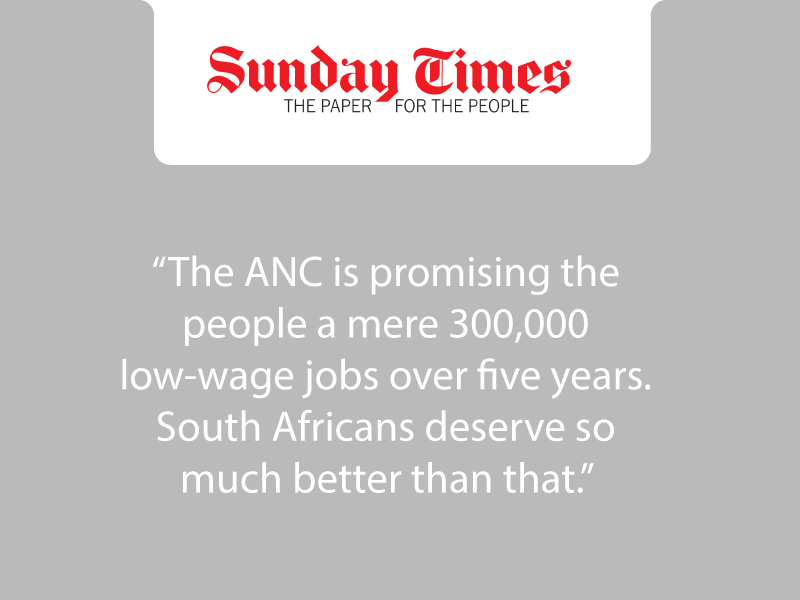
Defending the Constitution is of vital importance to securing the long-term future of democracy. However, shared prosperity and economic inclusion through growth and employment are also essential if all South Africans are to share in the Constitution’s promise.
The devastating realities of unemployment, poverty and inequality underline that the country’s “good story” is predominantly one of “insiders” – empowered by access to decent education, resources, social capital and political connections.
The story is very different for the many millions who have been failed by a poorly-performing education system and government policy choices that discourage firms from creating work for unskilled workers.
South Africa has reached a point where fundamental government assumptions that shape the country’s growth and development policies need to be questioned. Slowing growth is partly a consequence of poor governance, and poor governance is partly attributable to an intensified scramble by elites for what is correctly perceived to be a shrinking economic pie.
Among the ideas the country needs to rethink are: market-led growth cannot be trusted to have inclusive outcomes; only (relatively) high wage, high skill jobs should be created; inclusion for those left out of this scenario by a failing education system can and will be achieved through social grants and other subsidies; and the public sector can and will be an employer of last resort.
All of these assumptions are false.
In a context of slow global growth, tightening constraints on public expenditure and stubbornly high rates of unemployment and poverty, a new growth agenda is urgently needed.
What would such an agenda look like?
- The country needs one credible new strategy for inclusive growth: Since 1994, South Africa has adopted and discarded several plans for growth and development. Currently there are three with different proposals and approaches. Central to a new growth strategy must be recognition that faster growth is possible only if new businesses are able to start up, and existing firms can expand.
- SA needs a capable state that understands competitive markets: This, rather than a state that has special relationships with selected businesses is vital to our growth prospects.
- South Africa needs jobs for the workforce; we have not the one we wish we had: Expanding South African employment options to include industries that use lots of unskilled labour is a precondition for improving the prospects of the poor. These sectors have been undermined by labour market policies based on the “decent jobs” doctrine, which has raised the cost of employment and created a structural bias towards higher wages.
Reforms to the country’s wage-setting institutions are needed to rebalance this relationship and facilitate employment growth.
- Growth requires resetting the state-business relationship: The country will not succeed if government is pro-growth but anti-business. Government’s attitude denies basic truths about growth; it is firms subjected to competitive pressures that drive societies’ increasing prosperity. If the government wants growth and believes the private sector should invest and create jobs, then it cannot shirk the responsibility of defending markets, in particular to its own supporters. Business needs to devote strategic resources to developing policy proposals on national issues, and participate more effectively in debate on the role of markets and firms in this society.
Two further priorities complete the Centre for Development and Enterprise’s growth agenda: Skills are vital to all growth priorities and prospects, and economic policies must recognise that South Africa’s future is urban.
South Africa’s best lever for transformation for millions is rapid, job-rich growth. This requires a new strategy that is urban-led, private sector-driven, enabled by a smart state that understands markets and targeted at mass employment.
- Ann Bernstein is head of the Centre for Development and Enterprise. This article is based on CDE’s Growth Agenda reports.




